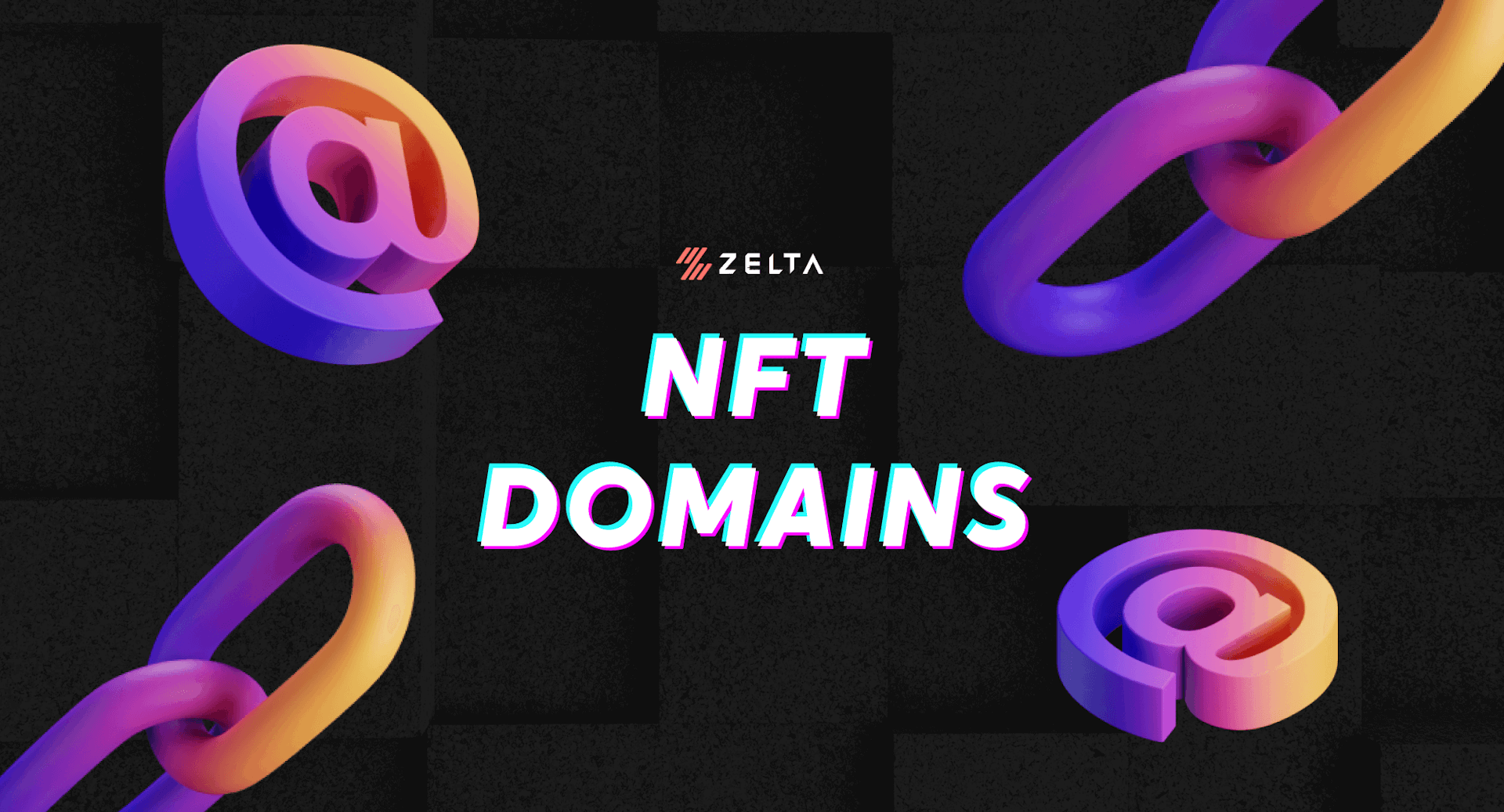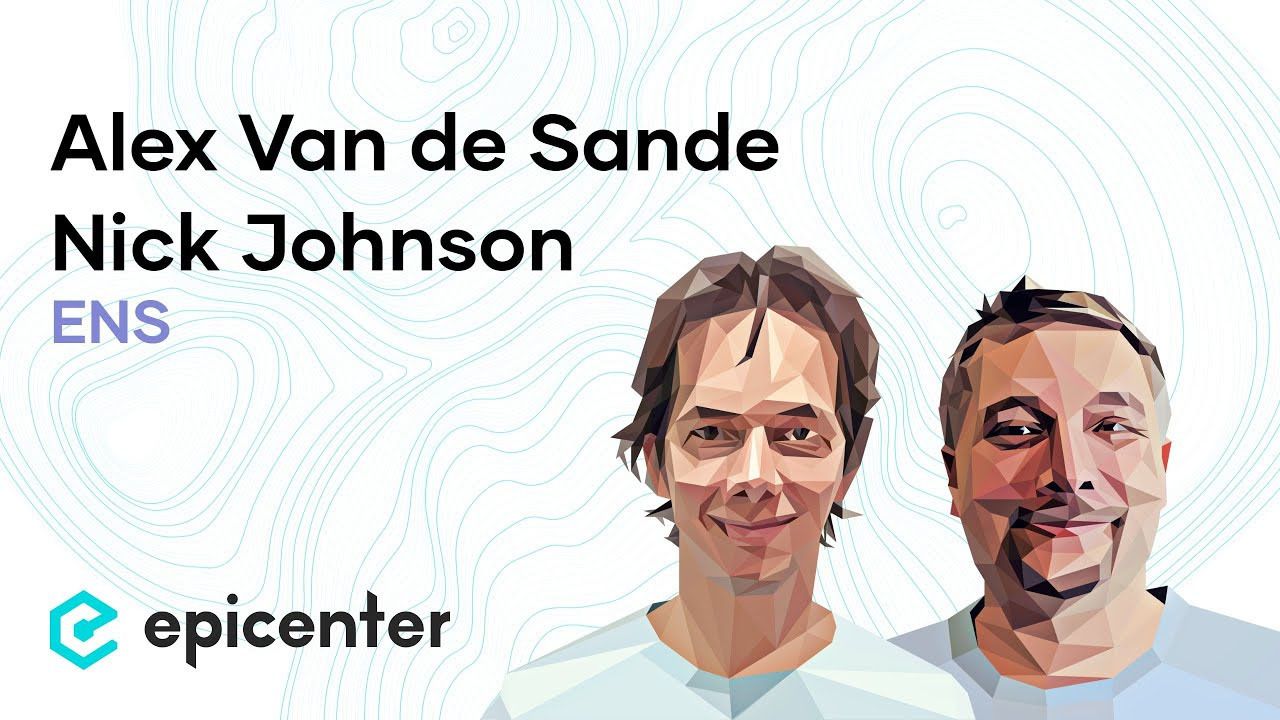

What are NFT Domains? An In-Depth Guide for Beginners
Today owning a domain on the web is no big deal but owning one on a Blockchain might be an early bird opportunity. Let’s understand in detail the world of NFT Domains.
Before getting into detail as to what NFT Domains are, let us first understand what a domain is. In simple terms, a domain is the name of the website which is what defines the individual or an organisation.
Today the most commonly used Web Domains are dot coms (.com), dot net (.net) or dot org (.org). Even in emails what usually follows ‘@’ is the domain of the recipient.
For getting a web 2 domain, there are many services where users can buy one and use it for a specified period. Post expiration a user can either renew it or choose to let it go.
All in all the use of a domain is to make it easy for the user to understand what exactly they are viewing or searching.

Even though the web Domains have been there for decades now they are not exactly foolproof.
First of all, they are centralised and open which allows any hacker to hack the domain and extract the relevant data. This might also include financial information thereby exposing the user to greater losses.
Moreover, even though the domain is registered under a username it is still owned by the selling entity. If they see fit then they can simply block the domain with just a click of the button thereby shutting everything down.
Thus to tackle such issues and more, the NFT Domains come into play.
Blockchain Domains
Much like real-world Domains the Domains on the Blockchain act similarly except they are open-sourced and preserved forever on the Blockchain. These domains are given by a service known as the Domain Name Service (DNS).
The function of a DNS is simple. It is to extract the easy-to-read URLs (for people) and convert them into machine languages for readability on other devices and specific interactions.
Let us understand the working with an example.
Suppose you type in facebook.com on your web browser. After pressing enter the computer will send a message to your Internet Service Provider (isp).
The isp will scan through the web and find out where Facebook is. It will then go to Facebook, grab a package and send it back to the host computer. The package will then be unwrapped by your computer to reveal the website.
Even though the process lasts only a few seconds there is a lot of math and coding involved. The software too makes the communication happen behind the scenes and only presents the results upfront.
DNS too functions in a similar way. It essentially acts as a translator for humans to speak code in a language understood by the machine. When it comes to owning a domain on the Blockchain one has to make use of the Ethereum Name Service (ENS).
Based on the Ethereum (ETH) Blockchain, ENS makes it easier for users to read and understand the Domains. It converts machine-readable addresses into human-readable addresses and vice versa.

These addresses can be used for money transfers, normal address sharing etc. Currently, on Ethereum, any crypto wallet has a long and complicated address with over 40 characters.
Naturally, the alphanumeric arrangement is too difficult for someone to memorise, share it out loud and then hope for the other person to hear and remember it correctly.
What ENS does here is that it translates these long wallet addresses into simple dot eth (.eth) Domains, for example, domain.eth. This basically acts as a nickname for the crypto wallet.
One great advantage of having such a service is that firstly it is cheap, secondly, it helps in overcoming the psychological roadblocks of crypto being complicated and helps in getting more people on board.
Lastly, it is not controlled by a single authority and is thus decentralised. This makes it safe to use without the fear of losing the bought domain. Another interesting fact is that often these Blockchain based naming services come up with rewards for domain holders.
For ENS the users got airdropped around $10,000 for simply buying and holding onto the domain!
Looking at the technical side, ENS was first created by Nick Johnson and Alex Van de Sande where they used two smart contracts working simultaneously for converting the addresses and making the occurrence of transactions possible.
Whenever someone looks up an ENS domain.

Lookup works when someone requests they look at two pieces of info. Through this info, the first thing to figure out is who the resolver is.
Resolver is set when ENS is first created. After getting to know the resolver, the person requesting the true address goes to the resolver with the name they are looking up and gets the true address of the person.
It is also important to note that the domain name can also have emojis as they are every bit modern. Presently, Inter Planetary File System (IPFS) is used for resolving websites. Even though it is fast, it is not as fast as DNS.
What is also important to note here is that the Blockchain domain is also fundamentally an NFT.
This means that they are stored in the user's wallet and can be transferred or sold to others for a price which the user sees fit. Since it is an NFT its records are also stored on the Blockchain and it may even have some utility.
In addition to making crypto payments, these NFT Domains are also used to make websites. Being decentralised nobody can shut them down except the user themself hence allowing room for free speech and no censorship.
Getting your own NFT Domain
Today getting a personalised NFT domain is as easy as buying crypto and anyone can do it. One can go to ENS Domains on the ETH network or wagmi.bio on the Solana network, choose their .eth or .sol domain name, pay a small fee and post payment completion use it till it expires.
The price for getting a domain increases as more and more people start making use of DNS.
The genre of NFT Domains is undoubtedly a pathway to getting more people into the crypto world.
Even though it is new and still in development, Blockchain DNS has already solved more problems than it was expected to and the ease of operation only makes it a suitable service in the coming years.
